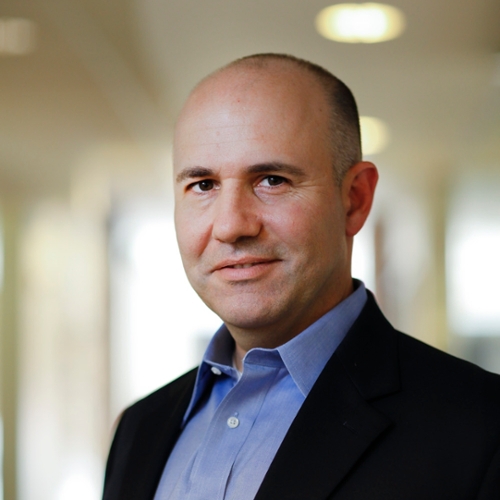 For most of his career, Andy Molinsky has focused on helping people overcome the challenges of their cultural identities in the workplace. His most recent book, Global Dexterity (he also teaches a graduate course at the International Business School with the same name) offers advice on how to adapt your behavior in foreign settings while staying true to yourself. Now Molinsky is broadening his approach: His new book, which will be published by Penguin Random House next year, is about learning to bravely and confidently step outside your comfort zone in everyday life.
For most of his career, Andy Molinsky has focused on helping people overcome the challenges of their cultural identities in the workplace. His most recent book, Global Dexterity (he also teaches a graduate course at the International Business School with the same name) offers advice on how to adapt your behavior in foreign settings while staying true to yourself. Now Molinsky is broadening his approach: His new book, which will be published by Penguin Random House next year, is about learning to bravely and confidently step outside your comfort zone in everyday life.
After Global Dexterity came out, a number of students and other readers told me that the lessons in my book that deal with conquering fears of doing things you’re not comfortable doing resonate beyond crossing cultures. It inspired me to think back to my earliest academic research on “necessary evils.” These are parts of your job that cause psychological or physical pain, but their completion is critical to your being effective at your job. Some examples are police officers carrying out evictions, doctors performing painful medical procedures on children or managers firing people. Doing these things requires you to step outside your comfort zone.
The times in your life when you step outside our comfort zone – when you challenge yourself and take on new risks – is when you grow. But doing things that go against your values or are contrary to your personality is often a struggle. Things like being assertive in a meeting when you’re not comfortable putting yourself out there, giving a speech when you’re terrified of public speaking or tooting your own horn when you're naturally a modest person are very hard. I’m interested in that tension and what can be done to ease it.
When dealing with a task or behavior that makes you uncomfortable, my best advice is to experiment – much like a chef experiments with a recipe. Find a way to make the experience your own. Figure out how to achieve your goal while being authentic and staying true to yourself.
Let’s say you’re an MBA student who’s afraid of networking. You’re modest, introverted, and you come from a culture where you only speak when spoken to. Yet you know you need to go to networking events to get a job. So, you must customize networking in a way that works for you. Choose the events you go to more thoughtfully. Rather than the on-campus meat markets, go to the smaller, more intimate meetings. Choose your timing. Perhaps go to only the very beginning of an event so you interact with the fewest number of people. Bring a wingman or a friend for moral support. Focus on how you talk. If saying things like “I did this, I did that” makes you uneasy, talk instead about how proud you are of your efforts to help the organization fulfill its goals.
As part of my class on global dexterity, I give students an assignment where they choose a task, like public speaking, that brings them outside their comfort zone. They need to do this task three times and keep a structured diary about their efforts. At the end of the semester, they come up with a creative way to portray how these experiences worked for them. I’ve had students do animated comics, short movies, choose-your-own-adventure-style stories and traditional PowerPoint presentations. The goal is for them to show how they applied tools and techniques to improve their soft skills and interpersonal communication.
I’ve learned so much from my foreign students, and I love hearing about where they’re from. The past few years I’ve had students from China, India, Iceland and Iraq. I once had a student from a country so small he had to get out a map to show me where he was from. I love building connections with my students and, I suppose, understanding something about their cultures – and also having lived and worked abroad myself – helps me a bit in that process.
Over the course of the semester, you’re not going to completely change someone. Someone who is fearful of networking is never going to turn into the world’s greatest schmoozer. But I do see changes in my students. They begin to develop a deeper understanding of the challenges they face, they gain new language to discuss it and they are able summon courage they didn’t know they had to take the first steps to address these challenges. My class helps them see light at the end of the tunnel, and that’s exciting.
"I love building connections with my students. Understanding something about their cultures helps me in that process."
Fields of study: Organizational behavior in business, global leadership, cultural and personal adaptation
Alma mater: Harvard University, PhD